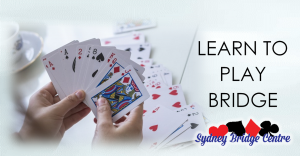“If we all make that special effort to be courteous to one and all, perhaps the game, the play and the atmosphere can become more enjoyable for one and all.”
ETIQUETTE AT THE TABLE
Above all, avoid any behaviour that would make anyone (especially beginners) feel uncomfortable.
The following actions are considered a breach of good manners:
- Commenting or acting during the auction or play so as to call attention to a significant occurrence, or to the number of tricks still required for success.
- Indicating the outcome of a trick before the trick is complete.
- Volunteering information that should be given only in response to a question. Eg: Partner doubles… straightaway and out of turn saying that it is for penalties.
- Asking for information when it is not your turn to call or play; & no intention to bid
- Indicating approval or disapproval of a call or play.
- Failure, as declarer, to wait for an opponent to play a card before calling for a card from dummy or before playing from your own hand.
- As dummy, touching or indicating a card to play in the open hand before receiving instruction from declarer.
- Taking offence at inadvertent breaches of etiquette by other players, especially inexperienced ones.
X Do not SNAP your cards down on the table.
X Do not pull up a card, push it back into your hand, and then pull up another card.
X Nor should you detach a card and then replace it to play another card.
√ You have the right to inspect the cards that have been played on the current trick as long as your card remains face up. Once all cards have been turned over (face down) no one can ask to see the cards that were played.
√ PRINCIPLE OF FULL DISCLOSURE This means that all information available to your partnership must be made available to your opponents once asked.
“All bridge players, at the bridge clubs, at national and international tournaments indeed hope, expect, and trust to meet only nice and polite, courteous and friendly people at the bridge table. They should not be disappointed.”




